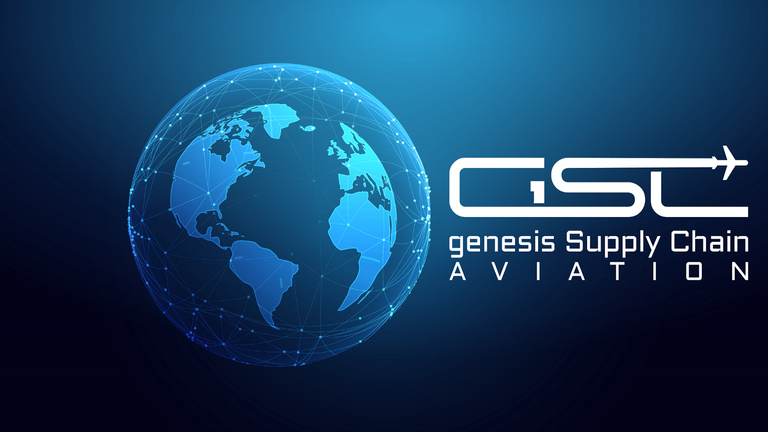
The aviation industry has seen tremendous growth in the past year driven by increases in passenger inflows. The industry’s net profit is poised to cross $38.4B* in 2018, which is an increase of 11% over 2017. With such heavy consumer traffic, competition is fierce, as the need for cost efficiency is high. To be able to thrive in such intense competition, there is a need for a robust supply chain, reduced interest payments and efficient cost management.
Let us look at supply management in the aviation sector in greater detail. The supply chain in the aviation sector is comprised of the following partners:
OEM Suppliers - The OEM suppliers provide airline parts that assemble large aircraft components and provide final products to customers. Their work involves design, development and manufacturing or complete assembling of the aircraft as well as their testing (transport planes, fighter jets, helicopters, etc.). The main OEMs on the aviation industry global market are: Airbus - Europe and Boeing - USA, followed by Bombardier - Canada, Embraer - Brazil and United Aircraft Corporation of Russia.
Raw Material Suppliers - These suppliers provide Raw materials to both OEM suppliers and other allied aviation intermediaries.
Educational and R&D Institutions - These institutions provide technical knowledge and provide fleet manpower for proper functioning of the industry.
IT Software and Hardware Service Providers - Companies who provide IT infrastructure services for the industry.
Hospitality Services - These provide F&B services to the airlines as well as airports.
Maintenance Services - These provide housekeeping and facility management services to the global aviation sector.
Ticketing Management - These are softwares that manage ticketing for an airline globally.
With the growing consumer influx and increased air traffic in most regions and constantly emerging technology, the aviation companies, constantly have the pressure to create competitive strategies to get a bigger share of the aerospace market. These strategies have led to the complexity of aircraft design, processes, and aerospace supply chain management. Here are common aerospace supply chain management issues that contribute to the increasing complexity of the supply chain that all stakeholders need to seriously consider.
1: Sourcing of Raw Materials
Metals, such as steel, aluminum, titanium, copper, magnesium, manganese, nickel, chromium, and many others, are the primary materials used for the manufacture of aircraft. No country today has a monopoly of the supply of these metals because the markets are widely distributed in different regions around the globe. Their timely delivery depends on their geophysical location and with qualities that meet the requirements of aircraft manufacturing.
2: Supplier Identity Management and Rating
Finding suppliers is possibly the longest and most tedious task for the buyer in terms of research, discovery, sorting and analysis of data. Along with this, there are also issues in managing supplier identities. Today supplier database management needs to be robust. Along with finding suppliers, there is no central repository where supplier ratings are available.The current system is inefficient, it relies on paper based systems, and has many unintegrated information silos.
3: Shortage of Skilled Workers
With newer technologies and production ramp up in response to increasing demand, there is limited expertise in supporting new programs and technologies. Training is not rapid enough to advance the needs of the workforce and there are limited skill sets available in managing complex projects.
Owing to the complex nature of the industry, and the inherent need to provide trust, the most perfect solution to this complexity lies with Blockchain. Blockchain is a technology that acts as the “central repository of trust” and it could be the most disruptive and creative technology of all time. It could solve this complex supply chain issue with the following use cases:
Supplier Data Management
Blockchain can help create supplier profiles and maintain ratings that are immutable. Due to the open source nature of the technology, access to these profiles is easy and editing/modifying these entries are impossible. This also helps build trust.
Parts/Raw Material Management and Maintenance
The parts and components can be tagged by a barcode which can be entered in the ledger. It can also have entries validated for getting part information and warranty info when needed. The blockchain can also help the industry ensure that parts procured are original and certified and can offer a “virtual copy” immutable record of the provenance of every part on the plane, every time it has been handled and by whom, from the beginning of the aircraft’s existence. This visibility provided is unmatched, and can make the practise of Aircraft management, risk free.
Is there a comprehensive solution under one roof that can provide these solutions?
Introducing Genesis Aviation - A blockchain based supply chain solution for the aviation industry. GSC creates a blockchain based decentralized platform where buyers and sellers commonly interact helping them to connect with each other.

GSC’s decentralized Blockchain platform will help an industry in the following ways
Technology to ensure traceability of critical parts on aircraft, follow up of scheduled obsolescence parts and shelf life limited parts
Entire supply-buyer purchase cycle with parts management
Supplier rating model for easy supplier recruitment
Supplier performance dashboard to help with identifying the right people for the job
The GSC Platform ICO pre-sale runs from July 1st through July 24th during which GSC tokens can be purchased at a significantly reduced rate. For more information read the white paper or light paper and to get in touch with the team or visit
https://gscplatform.io for more information.

G’day mate! and I Upvoted you :) !
:
“Most unintelligent or foolish people do not regard themselves as that; they regard themselves as not-that-intelligent or not-that-wise.” ====> Mokokoma Mokhonoana
Good news
@rishabh2s blockchain nowadays is becoming hot technology in all the fields.